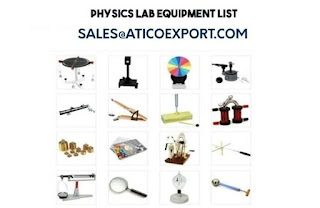Physics lab equipment manufacturers ensure accuracy through a combination of meticulous design, precise manufacturing processes, rigorous quality control measures, and calibration procedures. Here are some key ways they achieve this:
Design and Engineering: Manufacturers invest
significant effort in the design and engineering of their equipment to ensure
it meets the required specifications for accuracy and precision. This involves
using advanced CAD (Computer-Aided Design) software and simulation tools to
model and optimize the performance of the equipment.
Material Selection: High-quality materials with known
properties are carefully selected to construct the equipment. This ensures that
the components are durable, stable, and resistant to environmental factors that
could affect accuracy.
Manufacturing Processes: State-of-the-art manufacturing
processes, such as CNC (Computer Numerical Control) machining and precision
casting, are employed to fabricate the equipment with tight tolerances. This
minimizes variations in dimensions and ensures consistent performance across
different units.
Quality Control: Manufacturers implement stringent quality
control measures throughout the production process to identify and rectify any
deviations from specifications. This includes thorough inspections, testing,
and validation procedures at various stages of manufacturing.
Calibration and Testing: Before leaving the factory, each
piece of equipment undergoes calibration and testing to verify its accuracy and
performance. This may involve comparing measurements against known standards or
reference instruments to ensure alignment with established benchmarks.
Traceability: Manufacturers maintain detailed records of the
calibration history and traceability of components used in their equipment.
This allows them to track the performance of each unit over time and ensure
consistency between different batches.
Customer Support: Manufacturers provide comprehensive customer support, including technical assistance and calibration services, to help users maintain the accuracy of their equipment throughout its lifecycle. This may involve offering calibration kits, software updates, or onsite calibration services as needed. By employing these strategies, physics lab equipment manufacturers can ensure that their products meet the highest standards of accuracy, reliability, and performance, enabling scientists, educators, and students to conduct precise and meaningful experiments.
Physics Lab Equipment
Manufacturer and suppliers from India, Physics Lab Equipment Manufacturer and
suppliers in South Africa, Kenya, Nigeria, Ghana, Uganda, Philippines, Ethiopia.
You can contact us via email support on SALES@ATICOEXPORT.COM
or you can chat with us on our official website of Atico Export.

Comments
Post a Comment